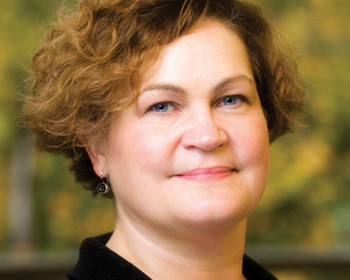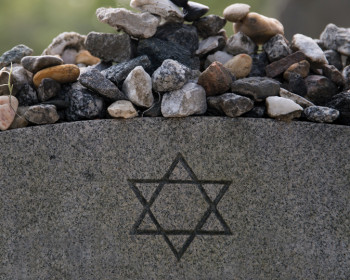An Early History of the School
The following is an abridged version of an early history of the school by James W. Gantenbein. It first appeared in The Nor’wester Annual of 1923.
There is no one in the school, I suppose, who does not know that the Northwestern College of Law is a direct descendant of the old Portland University of Oregon Law School, and so it will not be necessary to explain why a chronicle of the development of our school naturally carries us back to the rather picturesque story of our ancestor.
It was in 1884 that the University of Oregon organized a department of law, which was placed in this city, and this institute was the oldest school of law west of the Rocky mountains with the exception of Hastings College in California. Richard Thornton, a distinguished legal scholar and authority on Blackstone, was elected the Dean, and he associated with him such jurists as Judges Deady, Whalley, Northrup and Gilbert—all active and illustrious pioneers of the Oregon Bar. In these early days, the course of study embraced only two years with three hours a week. The classes were very small, meeting for some time around a table. The first class to graduate was that of 1886, which included two members, George M. Hoyt, now deceased, and John M. Pittinger. Gradually the school expanded, enlarging the faculty. The number of hours a week was increased to cover three years. In 1903, Professor Thornton resigned and Calvin
U. Gantenbein was chosen Dean, continuing in that capacity until the removal of the law department to Eugene. The latter event followed the decision of the regents and faculty of the State University to bring together the various schools, with the exception of the medical school onto the campus, and the law department in Portland discontinued at that time. It was felt by many, however, that there was a field in Portland for such a school, and the Northwestern College of Law was formed as a private institution with Judge Gantenbein as the Dean and with virtually the same faculty as had served in the former school. The first graduating class of the Northwestern College of Law was that of 1918, the class of 1916 and 1917 going out as under the University of Oregon, as they had started their courses while the school was under the State University. In turning back over the history of the school, one cannot escape two noteworthy aspects. One of these is the faculty, which started with the most distinguished members of our early Bar and continued through all its years with the leaders in Portland’s legal profession— men whose lofty and inspiring personalities have been the true guides of hundreds of successful men and women. The second conspicuous characteristic is the students themselves. I doubt whether any evening law school in the country can boast of so many graduates in proportion to its size, who have attained prominence in their communities. …
An interesting feature of the Commencement Exercises of the early classes was the reading of original theses by the graduates. “The class of ’92,” records one of the graduates, “was the last class, I believe, in which the students were required to write theses. Prior to that time the classes were comparatively small, and each member of the class wrote a thesis and read or delivered it at the graduation exercises at Eugene. On account of the size of this class it was decided to select three members of the class who would write and read their theses, and some difficulty arose over the selection of the persons who were to be honored with this duty. At the time, I recall, it was the source of some contention.”
The old Bar examinations were largely oral, being given before the Supreme Court. Shortly after the change, an event occurred which seems to have caused quite a stir among the class of ’97. “The examination before the Supreme Court,” comments a member of the class, “was fraught with considerable anxiety to our class for the reason that a graduate of the preceding class had the temerity, when speaking before the Bar Association a few weeks after his admission, to criticize the Supreme Court for passing on the examination papers of an entire class in one night (which they then did), and he asserted that it was a physical impossibility for the court to give careful consideration to so many papers in so short an interval. The result of his criticism was that we were on the anxious seat for more than a week.”
The school grew rapidly during the first years of the century, and at the time of the change in 1915, had enrolled close to three hundred students. The war, of course, hit the attendance very hard, and in the year 1917-18, the enrollment was very low. Since 1918, however, the school has been gradually but steadily gaining in numbers and scholarship, and I think, too, in good fellowship and co-operation. This last year a broad stride was made in bringing up the standard of work to that of the better day schools when the course was increased to four years with nine, instead of six, class hours a week. …
All history tempts interpretation. To me the one outstanding lesson to be derived from the story of our school is that earnestness of study is an enormous factor in the making of a lawyer. Certainly the students of this institution have lacked many of the conveniences and luxuries of the students of large day schools, such as the association of a beautiful campus and the satisfaction of leisurely study; but in one respect, at least, they worked under opportunities not usually afforded by day law schools, and that is the seriousness of purpose which ordinarily affixes itself to a group of students who are compelled to work during most of the day and attend school and study at night. An up-hill struggle is not pleasant, but glorious must be the satisfaction of looking back over the experience, as does a member of the class of 1896: “Possibly, if I had realized the magnitude of the task I set for myself when I commenced the study of law under the circumstances which I did, I might not have undertaken it, as during my studies I had no time to devote to my family, and I am frank to admit that if it had not been for a standard which I have set, which is never to acknowledge defeat, I might have quit cold. However, there is compensation in the pride of accomplishment, and as I now look back over the strenuousness of the task, the achievement was worth the effort, as are all accomplishments that tend toward the improvement of the mental or physical faculties, for there is nothing lost in life save wasted effort.” Nor can I pass over the assertion of a very successful woman teacher who went out with the class of 1914: “In earnestness, I would not trade the years I spent studying law for any other equal number of years that I have or could have spent in any other study. Not only has the knowledge of law been of great service to me, and indirectly to others I have been able to serve, but the broadening and inspiring influences of my experiences as a student of law and a teacher of law have been of immeasurable value and pleasure to me.” And lastly I wish to quote one of Oregon’s distinguished judges: “I have no doubt but that my experience was about like that of the great majority of the young men now attending the college. I found it extremely difficult to carry on my day’s work and do justice to my studies at night; neither was it easy to give up three nights a week, but I do not now regret having done so, because I must acknowledge that the help given me in your institution was the major factor contributing toward whatever advancement I may have made since then.”
I hope that the time will never come when the Northwestern College of Law looks back upon its interesting past for the purpose of entrenchment—I hope that it will continue to progress, never contented, but looking always for further opportunities to serve and improve the legal profession.
More Advocate Magazine Stories
email jasbury@lclark.edu
voice 503-768-6605
Judy Asbury, Assistant Dean, Communications and External Relations
Advocate Magazine
Lewis & Clark Law School
10101 S. Terwilliger Boulevard MSC 51
Portland OR 97219

